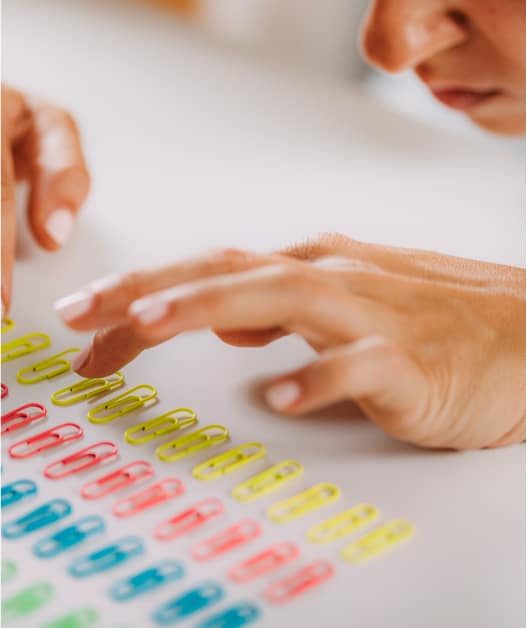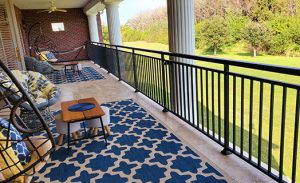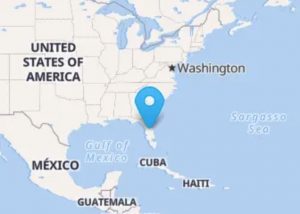To Call
Seeking out a residential school for your troubled girl? Our Central Florida residential treatment center for girls has much to offer.
If your daughter is struggling, you will want to find the best
treatment to help her. Providence Pass near Orlando helps
girls from across Florida.
- Beautiful Home & 20-Acre Ranch
- Individual, Family & Group Therapy
- Fun Recreational Activities
- Academics & Skill Building
- Equine Assisted Therapy

Obsessive Compulsive Personality Disorder vs OCD
Obsessive-Compulsive Personality Disorder (OCPD) and Obsessive-Compulsive Disorder (OCD) are two different mental health conditions that often get confused. While they share some similarities, they are distinct in many ways. This article will explain both disorders, compare them, and discuss their causes, symptoms, and treatments, focusing on how they affect teen girls. We will also mention other related disorders we treat at Providence Pass.
What is Obsessive Compulsive Personality Disorder (OCD)?
OCPD is a personality disorder characterized by a chronic preoccupation with rules, orderliness, and control. People with OCPD tend to be perfectionists and can be very rigid in their ways. This can lead to difficulties in relationships and daily functioning.
Symptoms of OCPD
Preoccupation with Details: An extreme focus on rules, lists, and order.
Perfectionism: Setting unrealistically high standards and being overly critical of themselves and others.
Control Issues: A need to control situations and others, often leading to conflicts.
Workaholism: Excessive devotion to work at the expense of leisure and relationships.
Inflexibility: Resistance to change and a strong preference for familiar routines.
What is Obsessive-Compulsive Disorder (OCD)?
OCD is an anxiety disorder characterized by unwanted, intrusive thoughts (obsessions) and repetitive behaviors (compulsions). These thoughts and behaviors can be distressing and interfere with daily life.
Symptoms of OCD
Obsessions: Recurrent, persistent thoughts that cause anxiety, such as fear of germs or harm.
Compulsions: Repetitive behaviors performed to relieve anxiety, such as excessive hand washing or checking.
Awareness: Realizing that the obsessions and compulsions are irrational but feeling powerless to stop them.
Comparison: OCPD vs. OCD
Understanding the differences between OCPD and OCD is important for proper diagnosis and treatment.
Awareness: People with OCD usually know their thoughts and behaviors are irrational, while those with OCPD believe their actions are justified.
Focus: OCD is centered around specific obsessions and compulsions, whereas OCPD is a broader pattern of perfectionism and control.
Impact: OCD can severely disrupt daily life with intense anxiety, while OCPD affects relationships and work due to rigid behavior.
Causes and Risk Factors
Both OCPD and OCD can be influenced by genetic, environmental, and psychological factors.
Genetics: Family history of anxiety disorders or personality disorders can increase the risk.
Environmental Factors: Childhood experiences, such as trauma or strict upbringing, can contribute to the development of these disorders.
Psychological Factors: Personality traits and coping mechanisms play a role in how these disorders manifest.
Accepting 3 Applications Immediately
Recognizing the Signs in Teen Girls
Identifying Obsessive-Compulsive Personality Disorder (OCPD) and Obsessive-Compulsive Disorder (OCD) in teen girls is essential for early intervention and support. Understanding the specific signs of each condition can help parents, teachers, and caregivers provide the necessary assistance to these teens.
OCPD Signs
Teen girls with Obsessive-Compulsive Personality Disorder (OCPD) may show these behaviors:
Excessive Concern with Order: Insisting on everything being in a particular order and becoming very upset when things are out of place.
Perfectionism: Setting unrealistically high standards and spending excessive time on tasks to achieve flawlessness.
Rigidity and Stubbornness: Resistance to change and inflexibility in routines and viewpoints.
Over-Commitment to Work: Prioritizing tasks over leisure activities and relationships.
OCD Signs
Teen girls with Obsessive-Compulsive Personality Disorder (OCPD) may show these behaviors:
Repetitive Behaviors: Engaging in compulsive actions like excessive hand washing or checking locks.
Persistent Worries: Experiencing intrusive thoughts, such as fears of contamination or harm.
Awareness of Irrationality: Knowing their fears and behaviors are unreasonable but feeling unable to stop them.
Impact on Daily Life: Obsessions and compulsions interfering with daily activities and social interactions.

Accepting 3 Applications Immediately
Addressing and Treating OCPD and OCD
Residential Treatment Programs
For severe cases, residential treatment programs can provide intensive support and care. At Providence Pass, we offer personalized treatment plans tailored to each teen’s unique needs. Our safe and supportive environment allows teens to heal and grow, with expert staff dedicated to helping them overcome their challenges.

Other Treatment Approaches
Dealing with these disorders involves a combination of supportive strategies and professional interventions. Here are some effective approaches:
Cognitive Behavioral Therapy (CBT): Helps teens identify and challenge negative thought patterns and develop coping strategies.
Family Therapy: Involves family members in therapy sessions to improve communication and support.
Exposure and Response Prevention (ERP): A type of CBT specifically for OCD, which involves gradual exposure to feared situations and preventing the compulsive response.
Medication: In some cases, medication may be prescribed to manage severe symptoms of anxiety or depression.
ART Therapy: Involves engaging in creative art activities to help individuals express and understand their emotions. This therapeutic approach can assist in reducing perfectionism and rigidity, providing coping strategies for those with OCPD.
Animal Assisted Therapy: Involves interactions with animals to provide comfort and reduce anxiety.
Equine Assisted Therapy: Involves working with horses to build confidence, improve emotional regulation, and reduce anxiety.
Other Disorders We Treat
At Providence Pass, we also provide treatment for various other disorders, ensuring comprehensive care for our residents. These include:
Accepting 3 Applications Immediately

Who We Are
Upward Bound provides a compassionate environment that nurtures the cognitive, emotional, and social development of struggling adolescents within a therapeutically supportive and educational community. Our facility includes private therapy offices for individual or family counseling, an intimate but modern group therapy room, indoor/outdoor interaction spaces, state-of-the-art technology, and educational tools to give at-risk girls the opportunity to heal and grow from past traumas.












